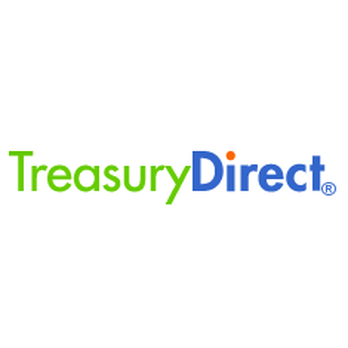
The account type you choose when trading forex is critical. Selecting the best account will help you to make more money and reduce risk.
There are several different types of accounts that you can choose from. Each one has a different level of risk and fee structure, as well as features. You should consider your trading style, capital, and strategy before deciding on the best account for you.
Standard Forex accounts can be a great option for new traders. They are affordable and have a variety of features for non-professionals. The accounts allow you to leverage the account through margin, which multiplies your profits or losses.
When choosing a forex account, the first thing to look at is the minimum deposit. Some brokers charge high minimums and others offer flexible options. You should also compare the minimum deposits offered by different brokers to find the best option for you.

You should also think about your budget and how much you can afford to spend on your forex trading. This is particularly important if your initial investment will be small.
If you are not able to invest much, a mini account may be the best option. These accounts are great for beginners, and they offer lower trading fees. However, they come with more restrictions.
When trading forex, you should also take into consideration the leverage amount. Do not go overboard, as it can increase your risks and reduce your profits. Standard forex accounts are limited to a leverage of up to 50:1. Mini forex accounts may have as much as 400:1.
Some traders prefer trading in smaller lots. These are micro and Nano lots and range from 100 to 1000 units of currency. These smaller lots may be more profitable, however they are also more volatile.
There are three different types: standard, managed and Swap-free. Swap-free accounts are not always a good choice for all traders, however, as they usually have higher fees and restrictions.

A demo account is the best way to discover all the trading accounts that are available. Most brokers offer free trial accounts that let you test their platforms and services without risking your own money.
Commodity trading accounts allow you to purchase and sell economic primary products such as gold and silver. They also include oil and natural gases. They can be traded in the stock exchange and are good for investors looking to diversify portfolios or reduce risk.
Check with your broker if credit cards are accepted and what the minimum deposit is. Credit cards are a convenient and popular way to deposit money into your account. However, some brokers accept deposits in local currency or cryptocurrencies.
FAQ
How are securities traded
Stock market: Investors buy shares of companies to make money. To raise capital, companies issue shares and then sell them to investors. These shares are then sold to investors to make a profit on the company's assets.
Supply and Demand determine the price at which stocks trade in open market. The price rises if there is less demand than buyers. If there are more buyers than seller, the prices fall.
Stocks can be traded in two ways.
-
Directly from the company
-
Through a broker
How can I find a great investment company?
It is important to find one that charges low fees, provides high-quality administration, and offers a diverse portfolio. The type of security in your account will determine the fees. Some companies charge no fees for holding cash and others charge a flat fee per year regardless of the amount you deposit. Others charge a percentage based on your total assets.
It is also important to find out their performance history. You might not choose a company with a poor track-record. Avoid companies with low net assets value (NAV), or very volatile NAVs.
It is also important to examine their investment philosophy. An investment company should be willing to take risks in order to achieve higher returns. They may not be able meet your expectations if they refuse to take risks.
What is a Bond?
A bond agreement is an agreement between two or more parties in which money is exchanged for goods and/or services. It is also known to be a contract.
A bond is usually written on a piece of paper and signed by both sides. The bond document will include details such as the date, amount due and interest rate.
The bond can be used when there are risks, such if a company fails or someone violates a promise.
Bonds are often used together with other types of loans, such as mortgages. The borrower will have to repay the loan and pay any interest.
Bonds can also be used to raise funds for large projects such as building roads, bridges and hospitals.
It becomes due once a bond matures. The bond owner is entitled to the principal plus any interest.
Lenders can lose their money if they fail to pay back a bond.
Are stocks a marketable security?
Stock is an investment vehicle that allows you to buy company shares to make money. This is done through a brokerage that sells stocks and bonds.
You can also directly invest in individual stocks, or mutual funds. There are more mutual fund options than you might think.
These two approaches are different in that you make money differently. Direct investment is where you receive income from dividends, while stock trading allows you to trade stocks and bonds for profit.
In both cases, you are purchasing ownership in a business or corporation. However, if you own a percentage of a company you are a shareholder. The company's earnings determine how much you get dividends.
Stock trading allows you to either short-sell or borrow stock in the hope that its price will drop below your cost. Or you can hold on to the stock long-term, hoping it increases in value.
There are three types for stock trades. They are called, put and exchange-traded. You can buy or sell stock at a specific price and within a certain time frame with call and put options. ETFs, also known as mutual funds or exchange-traded funds, track a range of stocks instead of individual securities.
Stock trading is very popular since it allows investors participate in the growth and management of companies without having to manage their day-today operations.
Stock trading is a complex business that requires planning and a lot of research. However, the rewards can be great if you do it right. You will need to know the basics of accounting, finance, and economics if you want to follow this career path.
What is the difference between a broker and a financial advisor?
Brokers are people who specialize in helping individuals and businesses buy and sell stocks and other forms of securities. They handle all paperwork.
Financial advisors are experts on personal finances. They help clients plan for retirement and prepare for emergency situations to reach their financial goals.
Financial advisors may be employed by banks, insurance companies, or other institutions. They may also work as independent professionals for a fee.
If you want to start a career in the financial services industry, you should consider taking classes in finance, accounting, and marketing. Also, you'll need to learn about different types of investments.
What are the advantages of owning stocks
Stocks can be more volatile than bonds. When a company goes bankrupt, the value of its shares will fall dramatically.
If a company grows, the share price will go up.
Companies often issue new stock to raise capital. This allows investors to buy more shares in the company.
Companies can borrow money through debt finance. This allows them to borrow money cheaply, which allows them more growth.
A company that makes a good product is more likely to be bought by people. The stock price rises as the demand for it increases.
As long as the company continues to produce products that people want, then the stock price should continue to increase.
Statistics
- Ratchet down that 10% if you don't yet have a healthy emergency fund and 10% to 15% of your income funneled into a retirement savings account. (nerdwallet.com)
- Individuals with very limited financial experience are either terrified by horror stories of average investors losing 50% of their portfolio value or are beguiled by "hot tips" that bear the promise of huge rewards but seldom pay off. (investopedia.com)
- Our focus on Main Street investors reflects the fact that American households own $38 trillion worth of equities, more than 59 percent of the U.S. equity market either directly or indirectly through mutual funds, retirement accounts, and other investments. (sec.gov)
- Even if you find talent for trading stocks, allocating more than 10% of your portfolio to an individual stock can expose your savings to too much volatility. (nerdwallet.com)
External Links
How To
How to Trade in Stock Market
Stock trading is the process of buying or selling stocks, bonds and commodities, as well derivatives. Trading is a French word that means "buys and sells". Traders purchase and sell securities in order make money from the difference between what is paid and what they get. This is the oldest type of financial investment.
There are many ways you can invest in the stock exchange. There are three types of investing: active (passive), and hybrid (active). Passive investors watch their investments grow, while actively traded investors look for winning companies to make a profit. Hybrid investors use a combination of these two approaches.
Index funds that track broad indexes such as the Dow Jones Industrial Average or S&P 500 are passive investments. This strategy is extremely popular since it allows you to reap all the benefits of diversification while not having to take on the risk. Just sit back and allow your investments to work for you.
Active investing is the act of picking companies to invest in and then analyzing their performance. An active investor will examine things like earnings growth and return on equity. They decide whether or not they want to invest in shares of the company. If they feel that the company is undervalued, they will buy shares and hope that the price goes up. They will wait for the price of the stock to fall if they believe the company has too much value.
Hybrid investments combine elements of both passive as active investing. For example, you might want to choose a fund that tracks many stocks, but you also want to choose several companies yourself. This would mean that you would split your portfolio between a passively managed and active fund.